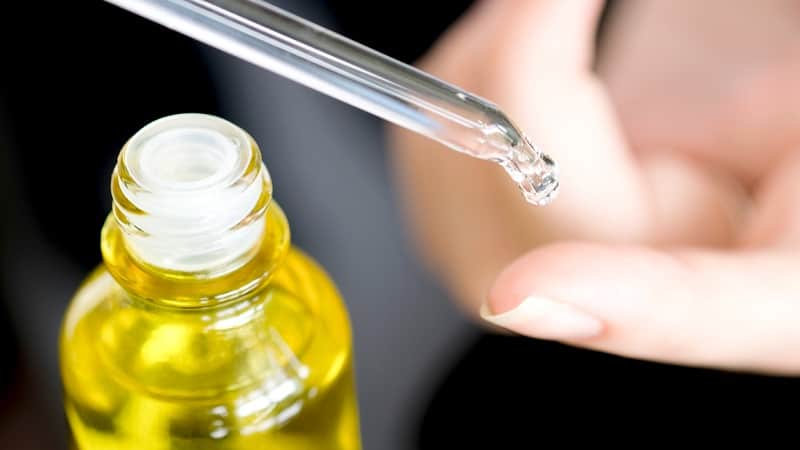Baby oil is a popular product used for a variety of purposes, from skin moisturization to removing stubborn labels. As with any product in our households, a common question arises – does baby oil expire, and if so, when?
Knowing the answer to this question is crucial for ensuring the safety and efficacy of the product when used on sensitive skin or in other applications.
Understanding the ingredients in baby oil is essential in determining its shelf life. The main component is mineral oil – a byproduct of petroleum, and it is combined with fragrances and other additives. Typically, mineral oil itself has a long-lasting shelf life.
However, the expiration date may be affected by the additional ingredients or external factors such as exposure to light, air, and temperature fluctuations.
Key Takeaways
- Baby oil expiration depends on its ingredients and storage conditions.
- Improper handling may compromise baby oil quality and safety.
- Alternative uses and proper disposal are essential for expired baby oil.
Understanding Baby Oil Ingredients

Baby oil is a popular product for moisturizing and protecting the delicate skin of infants and children. It is crucial to understand the ingredients present in baby oil, especially for those who are concerned about potential allergens, irritants, or harmful ingredients.
This section will provide a clear and knowledgeable overview of the common ingredients found in baby oil.
The primary ingredient in most commercial baby oil is mineral oil, a clear, odorless, and lightweight liquid derived from petroleum. It is also known as liquid paraffin.
Mineral oil is an effective emollient that locks in moisture and creates a protective barrier on the skin. It is generally considered safe and has been used in skincare products for many years.
Some baby oil formulations contain a minimal amount of added fragrance to impart a gentle scent or a subtle aroma. Fragrances may be derived from natural ingredients, such as essential oils or synthetic sources.
It is essential to note that individuals with sensitive skin, allergies, or asthma may need to use fragrance-free baby oil to avoid potential adverse reactions.
In recent years, there has been a growing interest in baby oil products made with natural ingredients. These formulations often replace mineral oil with vegetable oils such as coconut oil, olive oil, or sunflower oil.
These oils are known for their moisturizing properties and can provide similar benefits to mineral oil. Additionally, some natural baby oils may also feature essential oils like chamomile, lavender, or calendula, which can provide soothing, anti-inflammatory, and antiseptic properties.
It is worth mentioning that while natural ingredients are perceived as safer and healthier, it does not guarantee that they are free from adverse effects. Individuals may still experience allergic reactions or sensitivities to specific natural ingredients, especially essential oils.
In conclusion, understanding baby oil ingredients is essential for making an informed choice about the best product for your child’s needs.
Whether you opt for traditional mineral oil-based baby oil or a natural alternative made with vegetable oils and essential oils, it is crucial to check the ingredients list and, if necessary, perform a patch test to ensure the product’s safety and suitability for your child’s skin.
The Significance of Expiration Dates

When considering the use of baby oil, it is essential to understand the importance of expiration dates. This ensures that the product is safe and effective for its intended purpose.
Statutory guidelines typically require manufacturers to mention an expiration date, also known as a shelf life, on the packaging of various products, including baby oil.
Shelf life refers to the period between the manufacturing date and the time at which a product may no longer function optimally. In the case of baby oil, it signifies the time until which the oil retains its intended properties and provides reliable benefits.
A baby oil expiration date is a useful guideline, not only for consumers but also for retailers and manufacturers, to control the quality of their products.
Expired baby oil might change in appearance, become more viscous, emit a rancid smell, or lose its benefits over time. Using expired oil could lead to skin irritations or rashes.
However, if stored appropriately, baby oil can often remain usable even past its printed expiration date. Factors that may affect the shelf life of baby oil include:
- Storage temperature
- Exposures to air
- Presence of contaminants
To be on the safe side, consumers should regularly check the expiration dates on their baby oil products; this can help them avoid potential problems associated with using expired oil.
In summary, acknowledging the expiration dates on baby oil ensures that consumers are using a safe and effective product. Monitoring the storage conditions and keeping baby oil container properly closed can further extend its shelf life.
However, it is always a good practice to check the oil expiration date and avoid usage if it has crossed the specified duration from the date of manufacture.
Detecting Expired Baby Oil
When trying to determine if baby oil has expired, several indicators can help you make an assessment. Baby oil typically has a long shelf life, but it is essential to pay attention to any changes in its properties.
First, examine the baby oil’s texture and consistency. Fresh baby oil should have a smooth and light texture that is easily spreadable. If you notice that the oil feels thicker, stickier, or harder to spread, it might be an indication that it has expired or is no longer at its optimal quality.
The color of baby oil can also serve as an important clue. Normally, baby oil has a transparent and clear appearance. However, if you notice any discoloration, cloudy appearance, or if the oil has taken on a darker shade, this may suggest that the oil has deteriorated over time.
Another way to detect expired baby oil is by evaluating its smell. Fresh baby oil typically has a mild, neutral scent or a slightly sweet fragrance, depending on whether it is scented or unscented. A change in scent, particularly if the oil develops an unpleasant or rancid smell, is a strong indication that it is no longer suitable for use.
Lastly, inspect the baby oil container for any signs of damage or bulging. A compromised container may allow contaminants, air, or light to enter, causing the oil to spoil faster. If the container shows any signs of damage, it is best to dispose of the baby oil.
By observing these factors, you can confidently assess whether your baby oil has expired or is still safe for use. Remember to store baby oil in a cool, dry place, and avoid exposure to sunlight or extreme temperatures, as these can hasten the deterioration of the product.
Potential Risks of Using Expired Baby Oil

Using expired baby oil may pose various risks to your child’s safety and comfort. Over time, the chemical composition of baby oil can change, which may result in its reduced effectiveness and potential harm. The following paragraphs will discuss the potential risks associated with using expired baby oil.
One significant risk of using expired baby oil is skin irritation. Using an expired product may cause itchiness, redness, and discomfort on the baby’s skin. This is particularly concerning for infants, as their skin is more sensitive and prone to irritation.
Another risk associated with expired baby oil is the potential for developing rashes. As the product’s composition changes with time, it may no longer provide adequate protection and nourishment for the baby’s skin, ultimately leading to the formation of rashes.
Rashes can create additional discomfort and may require medical attention in severe cases.
There is an increased possibility of bacterial infections when using expired baby oil. Due to changes in the formulation, there may be a decreased ability to inhibit bacterial growth within the oil. This can cause bacterial contamination, exposing the baby’s skin to harmful infections.
Moreover, expired baby oil may trigger allergic reactions in some children. As the product ages, the breakdown of its ingredients can cause an increased risk of skin irritant effects, leading to an allergic reaction. This may manifest as swelling, redness, and itchiness in affected areas.
In conclusion, it is crucial to ensure that the baby oil being used is within its expiration date to guarantee the safety and welfare of your child. By doing so, you can minimize the risk of potential skin irritation, rashes, bacterial infections, and allergic reactions that may arise from using expired products.
Effects on Baby Oil Quality
When considering the quality of baby oil, several factors come into play. One such factor is the consistency of the oil, which can change over time. As baby oil ages or is exposed to extreme temperatures, it may thicken or separate, leading to an uneven texture.
This change in consistency is a sign that the oil may not be as effective as it once was, and should be considered when assessing the product’s quality.
Fragrance is another important element of baby oil that can be impacted over time. The natural scents in the oil may diminish or alter as the oil ages, potentially leading to an unpleasant or different smell.
This change in fragrance may be more noticeable when baby oil has gone bad, and can affect the overall experience of using the product.
Quality is also influenced by factors such as packaging and proper storage. Baby oil should be stored in a tightly sealed container, away from direct sunlight, heat, and moisture. The packaging should also be sturdy enough to prevent leakage and protect the product from contaminants.
When baby oil is stored correctly, it is less likely to degrade in quality, ensuring a longer shelf life.
Another aspect to consider when evaluating baby oil quality is whether the oil has gone bad. Common signs that oil has gone bad include a rancid smell, discoloration, or visible mold.
If any of these signs are present, the baby oil should not be used, as it may no longer provide the intended benefits and could be harmful to the skin.
Storage and Proper Handling of Baby Oil

Baby oil is a popular product for moisturizing and soothing sensitive baby skin. To ensure the quality and effectiveness of the oil, proper storage and handling are essential.
When storing baby oil, keep it in its original container in a cool, dry place away from direct sunlight. Exposure to sunlight can lead to the breakdown of the oil, diminishing its effectiveness. It is best to store baby oil at room temperature, as extreme heat or cold can negatively impact the oil’s properties.
In addition to avoiding sunlight, it is crucial to limit exposure to air. Oxygen can cause the oil to become rancid over time. To minimize this risk, tightly close the lid on the container after each use, ensuring no air can enter.
To make baby oil last longer, it is important to use clean hands when handling the product. Contamination by bacteria or dirt can lead to the degradation of the oil. As a result, it is recommended to use a clean tissue or cotton pad to apply the oil to avoid direct contact with the skin.
In summary, proper storage and handling practices, such as keeping baby oil away from sunlight and at room temperature, using clean hands for application, and limiting exposure to air, can help maintain the quality and effectiveness of the baby oil over time.
Different Types and Uses of Baby Oil
Baby oil is a versatile product that has multiple uses. It has a lightweight, non-greasy formula that makes it suitable for various purposes, ranging from skincare to household applications.
One popular use for baby oil is as a moisturizer. It provides hydration for both delicate and sensitive skin types. Typically made from mineral oil, baby oil creates a barrier to lock in moisture and soften the skin.
This makes it an excellent choice for those experiencing dry skin conditions, as it keeps skin smooth and supple.
Baby oil is also widely used as a massage oil. Its gentle, non-irritating formula makes it perfect for massaging babies and those with sensitive skin. Moreover, it allows hands to glide effortlessly over the skin while providing nourishment and hydration.
Many cosmetic products are oil-infused to help remove makeup more easily. Baby oil serves as an effective makeup remover, efficiently dissolving and lifting away even stubborn makeup products.
Simply apply a small amount of baby oil onto a cotton pad, and gently wipe away the makeup without any harsh rubbing or tugging on the sensitive skin around the eyes.
A common use of baby oil is in baby wipes, as the gentle lubrication not only cleanses the delicate skin of babies but also leaves it moisturized and free from irritations. Since baby oil is a delicate product, it is ideal for cleaning children’s sensitive skin without causing adverse reactions.
Apart from personal care applications, baby oil can be used in various household tasks. It is an excellent alternative to condition leather shoes or bags, as it helps maintain their texture and extend their overall lifespan.
Additionally, baby oil can be used as a lubricant for hinges and other metal items, helping to smooth out any squeaks or roughness in their movements.
In summary, baby oil is a multitasking product, widely used for moisturizing and massaging delicate skin, removing makeup, and even assisting in household chores. Its gentle composition benefits sensitive skin while offering a range of versatile uses.
Alternatives to Traditional Baby Oil
When seeking alternatives to traditional baby oil, which typically contains mineral oil and fragrances, it’s essential to consider natural options that provide similar benefits without the potential risks associated with expired products or chemical additives.
Here are some excellent alternatives to traditional baby oil.
Coconut oil is a popular choice for baby care, as it’s rich in fatty acids, which can help moisturize and protect the skin. It also has antibacterial and antifungal properties, making it a gentle, protective option for your baby’s delicate skin.
Jojoba oil is another suitable alternative, as it closely mimics the skin’s natural sebum. This makes it easily absorbed and less likely to cause irritation. Jojoba oil also contains vitamins and minerals that can nourish and protect your baby’s skin, making it an ideal choice for a natural baby oil substitute.
Almond oil is also a popular option, particularly sweet almond oil, which is known for its gentle, moisturizing properties. It’s hypoallergenic and safe for sensitive skin, while also being rich in vitamins A, E, and D, which can help promote healthier, smoother skin.
Avocado oil is a nutrient-dense, deeply moisturizing vegetable oil that can provide excellent nourishment to your baby’s skin. It’s a rich source of vitamins A, D, and E, as well as essential fatty acids, which help support skin health and repair.
For those seeking organic baby oil alternatives, look for products that use only natural, organic vegetable oils and avoid preservatives and artificial fragrances. These products often contain a blend of the oils mentioned above and others, such as olive oil or sunflower oil, to create a safe, nourishing oil for your baby’s skin.
In conclusion, many natural alternatives to traditional baby oil, such as coconut oil, jojoba oil, almond oil, and avocado oil, can be used for baby care.
By choosing organic options free of preservatives and artificial fragrances, you can provide your baby with a safe, gentle, and moisturizing experience while minimizing potential risks.
Miscellaneous Uses of Expired Baby Oil
Even though the expiry date of baby oil has passed, it doesn’t mean it’s useless. There are several alternative uses for expired baby oil that can be beneficial in various situations.
For instance, expired baby oil can work as a cheap lubricant for squeaky hinges and tight screws. It can be used as a substitute for WD-40 when you don’t have any on hand, effectively reducing squeaks and making it easier to unscrew or loosen items.
Additionally, expired baby oil can be applied to remove stubborn stickers or adhesive residue from surfaces. Simply apply the oil to the sticker or residue, let it sit for a few minutes, and gently peel or rub it off.
Moreover, expired baby oil is quite effective in cleaning and polishing stainless steel appliances. Apply a small amount of the oil to a cloth and gently rub it on the surface of your stainless steel appliances. This will remove any streaks or smudges and leave a shiny finish.
While expired baby oil might not be ideal for its original purpose as a skincare product, it can still provide assistance in various applications around the house.
From functioning as a lubricant to polishing stainless steel surfaces, expired baby oil offers numerous practical uses. Remember to exercise caution when using expired products, and always test the baby oil on a small, inconspicuous area before applying it to a larger surface.
Disposing of Baby Oil
Disposing of baby oil responsibly is crucial, as it can have negative impacts on the environment if not dealt with correctly. By following a few simple steps, disposing of baby oil can be a quick and easy process.
Firstly, it is essential never to pour baby oil down sinks, toilets, or drains. This can contaminate water supplies and harm aquatic life. Moreover, baby oil can clog pipes, leading to potential plumbing issues.
One environmentally friendly option for disposing of baby oil is to repurpose it. Baby oil can be used for various household tasks, such as cleaning, lubrication, or even as a makeup remover. By finding alternative uses for the oil, you are reducing waste and utilizing resources efficiently.
If repurposing is not feasible, consider disposing of the baby oil at a hazardous waste facility. Many communities have collection sites or events for household hazardous waste disposal, and baby oil can be included in this category due to its potential environmental impacts.
To find a suitable site, inquire with your local recycling center or government offices for guidance.
Remember to place the baby oil in a leak-proof container for transport to the waste facility. The original container will likely suffice if the oil is still stored inside. Alternatively, a tightly sealed, puncture-resistant container will also work.
In summary, to dispose of baby oil responsibly, avoid pouring it down drains and repurpose it if possible. If not, seek out a hazardous waste facility that accepts baby oil and transport it in a leak-proof container to promote environmental stewardship.
Frequently Asked Questions
How long is baby oil shelf life?
Baby oil generally has a shelf life of around 2 to 3 years from the date of manufacture. It is essential to check the manufacturer’s label for specific information regarding the expiration date and storage conditions.
What are the signs of expired baby oil?
Expired baby oil may have an off-odor, change in color, or exhibit a different consistency than when first purchased. Additionally, the oil might become less effective at providing the intended benefits, such as moisturizing the skin.
How to store baby oil properly?
To extend baby oil’s shelf life, store it in a cool, dry place away from sunlight and heat sources. Keep the container tightly closed when not in use to prevent contamination and oxidation.
Can baby oil be harmful if expired?
While using expired baby oil is not likely to cause severe harm, it may be less effective and could lead to skin irritation, particularly in individuals with sensitive skin. It is always best to follow the manufacturer’s guidelines when using any product, including baby oil.
Are there alternative uses for expired baby oil?
Expired baby oil can often find alternative uses such as lubricating door hinges, polishing stainless steel appliances, or even removing sticky labels from surfaces. However, it is not recommended to use expired baby oil for skincare purposes, especially on infants and sensitive skin.
Do different brands of baby oil have varied expiration dates?
Yes, different brands of baby oil may have different expiration dates depending on the specific ingredients, formulations, and storage recommendations. Always refer to the manufacturer’s label for information on shelf life and storage conditions.

Iesha is a loving mother of 2 beautiful children. She’s an active parent who enjoys indoor and outdoor adventures with her family. Her mission is to share practical and realistic parenting advice to help the parenting community becoming stronger.
